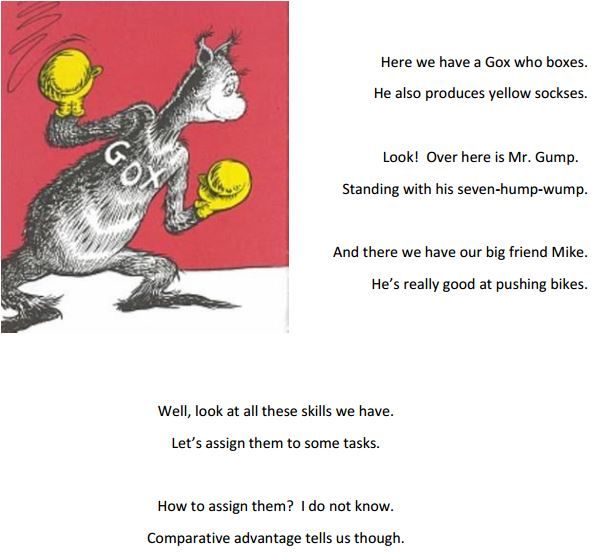Comparative
advantage is an economic model which holds that individuals, companies,
and entire nations leverage particular advantages in productivity in
order to increase profits.
A Dictionary of Economics and Commerce defines it as the:
.
. . measure of relative efficiency of resource use when the opportunity
cost of production is taken into consideration. It is the basis of the
specialization or division of labor and international trade.
Kenny Fennell explained it in a macroeconomics course paper modeled after the Dr. Seuss's famous book
One Fish Two Fish Red Fish Blue Fish.
In Fennell's tale, the Gox, Mr. Gump, and Mike excel at particular
skills. They thrive economically because they specialize in those skills
instead of attempting to master each other's.
You can read the entire story here.


No comments:
Post a Comment